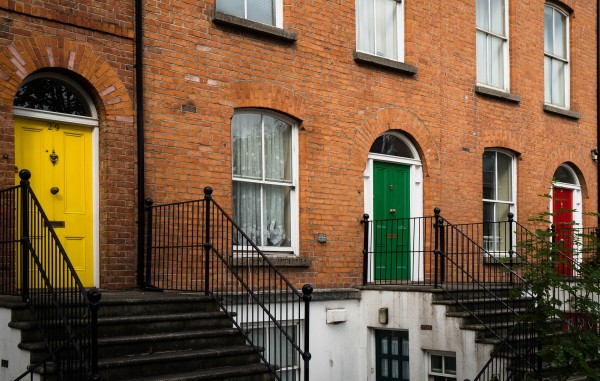
Buying a property may be a great idea – but what exactly are you buying? If you are purchasing a Leasehold property, all may not be rosy in the communal garden.
Homes in the UK are typically sold in two ways: Freehold where you own the property and land it is built on outright, and Leasehold where you buy ownership of property for a specified time and according to the Lease agreement.
As a Freeholder, the property is basically yours to do with as you please, subject to planning permission and building regulations. You’re responsible for any maintenance and repairs. Traditionally, houses in Britain are sold as Freehold properties, though Leasehold houses are now also available.
The Leasehold system has been used for hundreds of years and is most prevalent when it comes to blocks of flats or larger homes that have been converted into multiple flats. While some flats may be sold as Commonhold or ‘Share of Freehold’, an overwhelming proportion are Leasehold. When a property is owned as Leasehold, the owner is effectively a tenant with a very long-term rental, while the land the property is built on remains in the ownership of the Freeholder.
Benefits of Leasehold property
Buying a Leasehold property doesn’t have to be problematic as long as you know exactly what you are signing up for. While the terms of the Lease are fixed, the length of the Lease can vary. Often issued for 99 years, 125 years or even 999 years, you will be taking over the remaining years at the point of purchase.
Everyone in the building has a contractual obligation to contribute to the maintenance of communal areas and you’ll be required to pay a service charge to cover your share. Typically, a management company will have been appointed to deal with anything from window cleaning to lift maintenance, exterior refurbishments and garden upkeep.
The Lease contains restrictive covenants that can help deal with nuisance neighbours including pet owners smokers or party animals and can prohibit ‘uncommunal’ behaviour such as hanging washing out to dry on the balcony, installing noisy hardwood flooring or playing a loud musical instrument after hours.
If you are not happy being a Leaseholder or disagree with how the property is being managed, you can apply to either buy the Freehold under the Leasehold Reform, Housing and Urban Development Act 1993 or exercise your Right to Manage according to the Commonhold and Leasehold Reform Act 2002.
Problems with Leasehold ownership
Unfortunately, Leasehold ownership can come with its fair share of problems. Last summer’s Leasehold houses and ground rent scandal is a major example of what can go wrong, but it’s by no means the only drawback.
Unless property prices rise, your Leasehold flat is a decreasing asset. With every year that goes by, there are fewer remaining years on the Lease, meaning your property will gradually reduce in value until ultimately, at least in theory, it will revert back to the Freeholder.
Most mortgage lenders refuse to lend or Leases below 70 years, which will make your property much harder to sell. Of course, you have the legal right to extend the lease on your property, which will increase its value, but this is a costly option to the tune of tens of thousands of pounds. You have been warned.
The Freeholder can sell the Freehold interest of his investment property on the open market at any time, regardless of the Lease situation. It is possible for Leaseholders to have no knowledge of a transfer or Freehold ownership until the new Freeholder gets in touch seeking to renegotiate the terms of the Lease.
The restrictive covenants contained in the Lease may actually work against you and stop you from enjoying your property. Check the terms carefully: Would you be able to install parquet flooring? Could you keep a cat? Play the piano?
Your Freehold landlord or appointed management company will make all the decisions regarding maintenance and repair of communal areas as well as for deciding on the freeholder building insurance. Their approach may be so laissez-faire that nothing ever seems to get fixed, or they may be overzealous and carry out works that you consider unnecessary. Unless you have the support of other Leaseholders, it’s difficult to question their level of competence.
More importantly, still, there are few restrictions in place regarding how much a Freeholder can charge, making the system open to abuse. Take a long, hard look at the Leasehold Accounts to see if the level of service charge seems reasonable. Is it suspiciously low or unreasonably high? Perhaps you’re being charged thousands of pounds in admin fees with no visible, tangible results? Some Freeholders may use service charges to generate additional income.
Finally, your Lease will stipulate the level of ground rent you have to pay each year. This may be a ‘peppercorn’ rent or a small nominal amount. Crucially, there may be provisions for the ground rent to increase at certain intervals – doubling every 10 years, for instance. This is a ticking time bomb that will ultimately lead to extortionate ground rent bills and onerous demands that will seriously depress the value of your Leasehold property.




 POSTED BY
POSTED BY 

